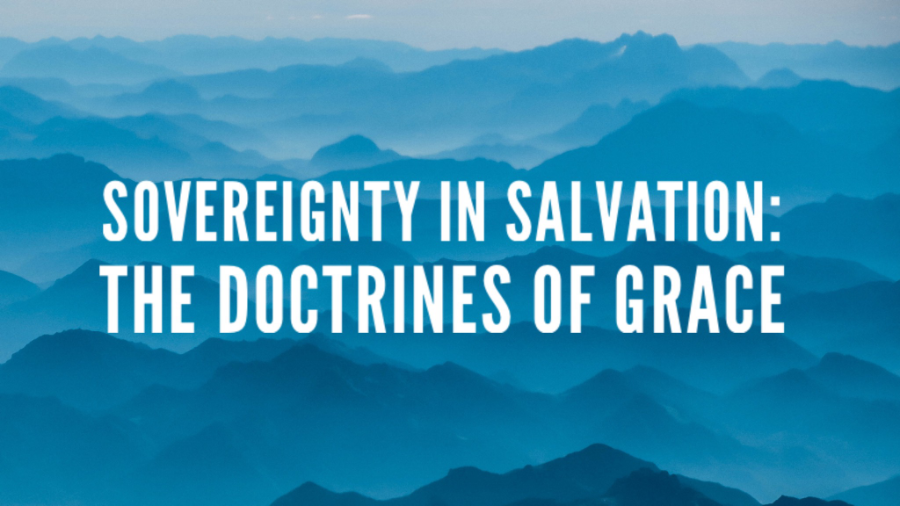The book of Leviticus, and quite frankly the entire Levitical system, can be summed up in a three-word sentence: God demands perfection. He demands perfect sacrifices, a perfect priesthood, perfect worship, perfect purity, perfect justice and righteousness, perfect observance of the ceremonies and festivals, and perfect civility. The children of Israel were indeed to “…be holy, for I the Lord your God am holy” (Leviticus 11:44,45, 19:2). To be holy is to be set apart, and God set apart His people Israel from every other nation in the world. Why? Because it is through them that the Abrahamic Covenant will be fulfilled, all made possible through the person and work of Jesus Christ. As Paul wrote in Galatians 3:13-14, “Christ redeemed us from the curse of the Law, having become a curse for us – for it is written, ‘Cursed is everyone who hangs on a tree’ – in order that in Christ Jesus the blessing of Abraham might come to the Gentiles, so that we would receive the promise of the Spirit through faith”.
Before we get too far ahead of ourselves, let’s go back to Leviticus, and focus particularly on the priesthood in the Mosaic Covenant, because that is the lynchpin of today’s post. Whenever the Old Covenant gets mentioned, often the first thing that comes to mind for many Christians is the sacrificial system. They will rightly point out that animals were sacrificed in the tabernacle (and later the temple) as a type and shadow of Christ’s ultimate sacrifice, but this is only one half of the equation. There is a whole other aspect of the Old Covenant that often gets overlooked or oversimplified, and that is the role and function of the priest. A priest is, by definition, a mediator between God and man. Many false religions incorporate priests, most notably Roman Catholicism in our own day. But in antiquity, what made the Levitical priests unique was that they were divinely appointed mediators between the Israelites and the one true God.
In other words, Israel was the only nation in the world that had access to the true God through descendants of Aaron who were ordained for the priesthood. According to the Law, the priest was to wear special garments (Exodus 28, 39, Leviticus 6:10-11, 8:6-9, 16:4), he was to be ceremonially cleansed (Leviticus 8:22-36), and he was to offer sacrifices (Leviticus 9:1-24, 16:5-34). According to Leviticus 16, there was one special day every year when the high priest entered into the Holy of Holies and made atonement for all the sins for all the people in Israel. This was known as the Day of Atonement, or Yom Kippur, and it fell on the tenth day of the seventh month of every year (September-October). An important note to make is that these were real sacrifices that provided real atonement for an intended group of people, not a hypothetical atonement that anyone can somehow “activate” on the basis of some decision they make. Keep that in mind, as this is an observation that we will return to later in this series.
To summarize the significance of the Levitical priesthood, we can conclude that all the ceremonial aspects of this unique office are ultimately fulfilled by our great High Priest, Jesus Christ. The special garments, the ceremonial cleansings, and the sacrifices offered up all pointed to Him, for as the writer of Hebrews wrote, “For it was fitting for us to have such a high priest, holy, innocent, undefiled, separated from sinners and exalted above the heavens; who does not need daily, like those high priests, to offer up sacrifices, first for His own sins and then for the sins of the people, because this He did once for all when He offered up Himself” (Hebrews 7:26-27). Jesus, unlike the high priests of old, did not need to wear special garments to signify holiness; He Himself is the Holy One of God (John 6:69). Jesus, unlike His predecessors, did not need to be ceremonially cleansed in order to function as a priest; He is the very source of what it means to be “clean” and He is the one who cleanses others (Luke 5:12). Jesus, unlike the high priests who came before Him, did not need to offer animal sacrifices for His own sins and for the sins of the people; He is the Lamb of God without sin and offered Himself once and for all!
Just how clean is our Lord? Unlike everyone else who has ever lived, He perfectly obeyed the Law of God. He kept all the Levitical laws and satisfied God’s requirement of perfection. Therefore, Jesus meets every requirement of a perfect high priest because He is holy, clean, and without sin. But what about the fact that Jesus was not a Levite? Weren’t the high priests supposed to be direct descendants of Aaron according to the Law of Moses? Oh, but this is where the real beauty of the atoning work of Christ really begins to blossom. As the writer of Hebrews explains:
“Now if perfection was through the Levitical priesthood (for on the basis of it the people received the Law), what further need was there for another priest to arise according to the order of Melchizedek, and not be designated according to the order of Aaron? For when the priesthood is changed, of necessity there takes place a change of law also. For the one concerning whom these things are spoken belongs to another tribe, from which no one has officiated at the altar. For it is evident that our Lord was descended from Judah, a tribe with reference to which Moses spoke nothing concerning priests. And this is clearer still, if another priest arises according to the likeness of Melchizedek, who has become such not on the basis of a law of physical requirement, but according to the power of an indestructible life. For it is attested of Him, ‘You are a priest forever according to the order of Melchizedek’. For, on the one hand, there is a setting aside of a former commandment because of its weakness and uselessness (for the Law made nothing perfect), and on the other hand there is a bringing in of a better hope, through which we draw near to God. And inasmuch as it was not without an oath (for they indeed became priests without an oath, but He with an oath through the One who said to Him, ‘The Lord has sworn and will not change His mind, “You are a priest forever”’); so much the more also Jesus has become the guarantee of a better covenant” (Hebrews 7:11-22).
Jesus not only perfectly fulfills all the types and shadows associated with the Aaronic priesthood; He is an even better High Priest who is the mediator of a better covenant according to the order of a better priesthood! The Aaronic priesthood could only mediate and provide atonement for Israel, but our High Priest mediates and provides complete removal of sins for those who come to Him with true, saving faith. In this way, we who have been grafted into Israel can partake in the blessing of Abraham that was promised all the way back in Genesis 12. Next time, we will take a closer look at the atoning work of Christ and determine if the extent of His atonement was universal or limited to a particular people.

